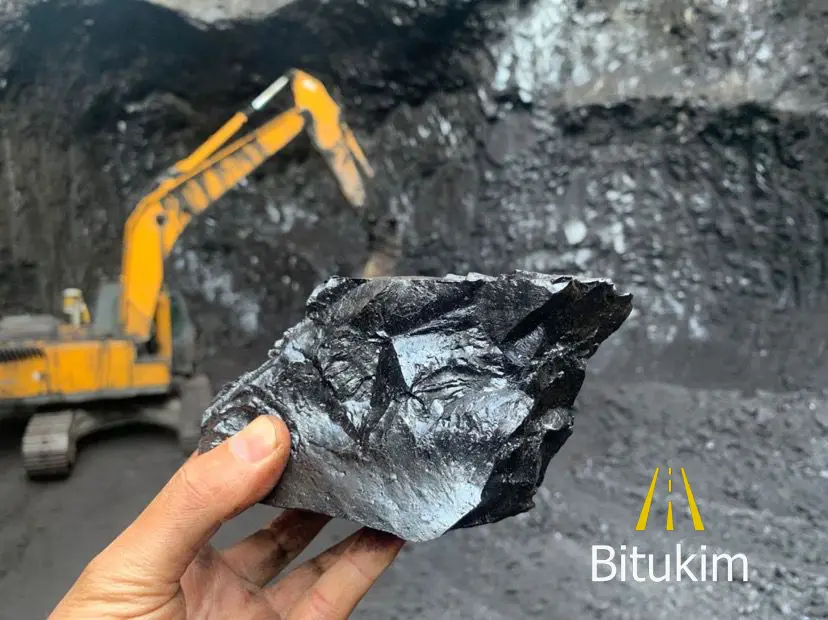
Gilsonite for shale stabilization, Gilsonite is highly effective for shale stabilization in drilling operations. Shale stabilization refers to the process of maintaining the structural integrity of shale formations while drilling, preventing problems like swelling, sloughing, disintegration, and wellbore instability. As a naturally occurring asphaltite, Gilsonite serves as a key additive in drilling fluids to address these challenges, providing both physical and chemical stabilization to the shale.
How Gilsonite Aids in Shale Stabilization:
- Sealing Micro-Fractures and Pores:
- Barrier Formation: Gilsonite creates a thin, impermeable film on the wellbore walls, effectively sealing micro-fractures and pores in the shale. This prevents the entry of drilling fluids into the formation, reducing fluid invasion that could destabilize the shale.
- Preventing Swelling of Clay Minerals:
- Inhibition of Water-Induced Swelling: Shales often contain water-sensitive clays, such as smectite and montmorillonite, that can swell upon exposure to water-based drilling fluids. Gilsonite forms a protective barrier that minimizes water contact with these clays, preventing them from absorbing water and swelling.
- Reducing Fluid Invasion:
- Improving Fluid Loss Control: By acting as a plugging agent, Gilsonite reduces the amount of drilling fluid filtrate that enters the shale formation. This reduces the risk of weakening and destabilizing the shale due to fluid invasion and subsequent swelling or disintegration.
- Enhancing Mechanical Strength:
- Providing Flexibility and Toughness: Gilsonite is naturally flexible and resilient, which allows it to conform to the wellbore walls and support the shale formation. This mechanical reinforcement helps prevent sloughing and breakouts, maintaining a stable wellbore.
- Improving Wellbore Stability:
- Minimizing Shale Sloughing: By sealing micro-fractures, reducing fluid invasion, and preventing clay swelling, Gilsonite helps maintain wellbore integrity, reducing the risk of shale sloughing, where pieces of shale detach and fall into the wellbore.
- Enhancing Lubricity and Reducing Friction:
- Reducing Torque and Drag: Gilsonite provides lubricating properties to the drilling fluid, reducing friction between the drill string and the wellbore. This minimizes the mechanical stress on the shale, preventing disintegration and maintaining wellbore stability.
- Maintaining Mud Properties:
- Improving Rheology and Stability: Gilsonite helps maintain desirable rheological properties of drilling fluids, such as viscosity and yield point, which are essential for effective cuttings transport, wellbore cleaning, and overall drilling efficiency.
- Thermal Stability:
- Effective in High-Temperature Environments: Gilsonite remains stable at high temperatures, making it suitable for use in deep or high-temperature wells where other additives might degrade or lose effectiveness.
- Providing Environmental Benefits:
- Eco-Friendly Additive: As a naturally occurring hydrocarbon resin, Gilsonite is non-toxic and environmentally friendly, offering a safer alternative to synthetic shale stabilizers.
Benefits of Using Gilsonite for Shale Stabilization:
- Improved Wellbore Integrity: By sealing micro-fractures, preventing swelling, and providing mechanical support, Gilsonite enhances the structural integrity of the wellbore, reducing the risk of collapse or instability.
- Reduced Non-Productive Time (NPT): Effective shale stabilization minimizes drilling interruptions caused by wellbore instability, leading to more efficient operations and reduced downtime.
- Lower Operational Costs: Preventing shale-related issues reduces the need for additional treatments, remedial measures, or sidetracking, resulting in significant cost savings.
- Enhanced Safety: Maintaining a stable wellbore reduces the risk of sudden shale collapse or sloughing, contributing to safer drilling conditions.
Applications:
- Unstable Shale Formations: Gilsonite is particularly useful in formations with water-sensitive or reactive shales that are prone to swelling, sloughing, or disintegration.
- High-Pressure, High-Temperature Wells: Suitable for HPHT wells where maintaining shale stability is critical for successful drilling.
- Extended-Reach and Horizontal Wells: In complex well geometries, Gilsonite helps manage risks related to shale instability, ensuring continuous and smooth drilling operations.
Summary:
Gilsonite is an effective additive for shale stabilization, providing a range of benefits such as sealing micro-fractures, preventing swelling, reducing fluid invasion, and enhancing wellbore stability. Its use in drilling fluids contributes to more efficient, cost-effective, and safer drilling operations, making it a valuable tool in managing the challenges associated with drilling through shale formations.

